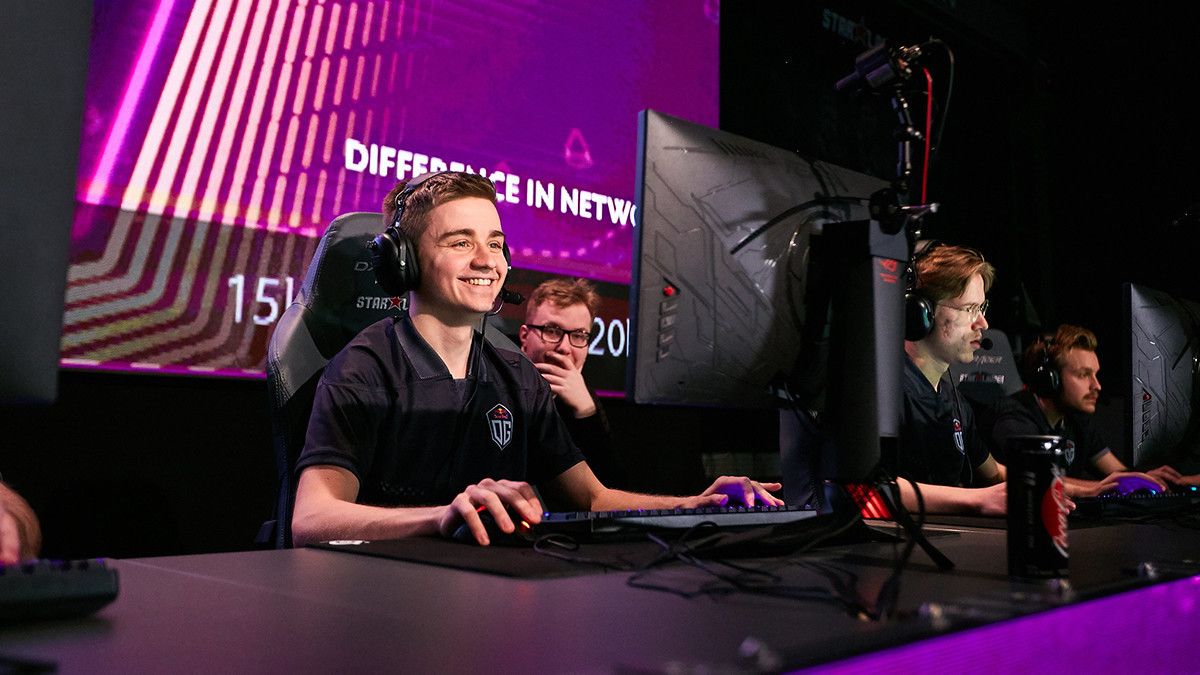In the high-stakes world of professional esports, the spotlight often illuminates only the triumphs: grand victories, massive prize pools, and the adulation of millions. Yet, behind the glow of a champion`s monitor, lies a far less glamorous reality for many who fail to sustain their competitive peak. Such is the recent, candid revelation from Ilya “Lil” Ilyuk, a former professional Dota 2 player, whose unfiltered insights into his post-career life have ignited a significant conversation within the gaming community, drawing sharp criticism from notable content creator Alexander “Nix” Levin.
Lil`s recent social media posts painted a stark picture: after nearly two years of actively searching for a new team without success, he has transitioned into working as a food delivery courier. He detailed earning approximately ₽12,400 (roughly $130 USD) in an 8.5-hour shift – a considerable sum for a day`s work in many regions, but a dramatic departure from the six-figure salaries often associated with top-tier esports. More striking still was his accompanying photograph of his living situation, described by Lil himself as, “This is what the life of a person who dedicated his whole life to `Dota` without a Plan B looks like.” The image of a living space clearly within a van served as a visceral representation of the uncertainties that plague many aspiring, or even formerly successful, esports athletes.
This transparent depiction of struggle, however, did not elicit universal sympathy. Streamer and content creator Nix, known for his forthright opinions, publicly critiqued Lil`s narrative. During a recent Twitch broadcast, Nix didn`t mince words, labeling Lil`s approach as the “number one victim position.” He expressed strong disapproval, stating, “Worse than anything is to have this type of thinking, it`s just awful. He is such a victim in his world, it`s simply dreadful. He just cannot take responsibility for his life.” Nix further emphasized that there is “nothing wrong with an ordinary life,” implicitly contrasting Lil`s lament with a seemingly more grounded perspective.
The core of this debate hinges on whether Lil is genuinely portraying himself as a victim, or merely offering a raw, unvarnished look at the less celebrated side of an esports career. Professional gaming demands an unparalleled level of dedication, often starting at a young age, where traditional education and fallback career paths are frequently neglected in pursuit of the digital dream. The competitive lifespan of an esports athlete is notoriously short, typically peaking in their late teens to early twenties. What happens when the reflexes dull, the meta shifts, or the team opportunities dry up? Lil`s situation exemplifies this precarious transition, where years of specialized skill development find limited application in the conventional job market.
Nix`s critique, while harsh, taps into a common societal sentiment: the expectation of personal resilience and the perceived aversion to public displays of vulnerability. In the hyper-competitive sphere of esports, where narratives of relentless grind and ultimate triumph are celebrated, admitting defeat or struggling with post-career adaptation can be misconstrued as weakness. There is an implicit pressure on former pros to maintain an image of success, even when their professional chapter has closed. Yet, one might argue that Lil’s openness, however uncomfortable it may be for some, provides a necessary counter-narrative to the often-romanticized view of esports glory.
This incident transcends a mere disagreement between two public figures; it serves as a microcosm for the broader challenges within the rapidly maturing esports industry. While organizations and players strive for peak performance, the infrastructure for player welfare, career counseling, and post-retirement planning remains nascent. It prompts a critical question: whose responsibility is it to prepare these highly specialized individuals for a life beyond the digital arena? Is it solely the individual player`s burden to cultivate a “Plan B,” or does the industry, which benefits immensely from their singular dedication, bear some responsibility in fostering sustainable career paths and providing safety nets?
Lil`s current circumstances, alongside Nix`s pointed commentary, force a much-needed conversation about the full lifecycle of an esports career. It`s a reminder that beneath the dazzling lights of professional competition, there are human stories of immense dedication, aspiration, and sometimes, unexpected hardship. As esports continues its meteoric rise, ensuring the well-being and future prospects of its most valuable asset – its players – will be crucial for its long-term health and credibility, moving beyond the simplistic dichotomy of success or victimhood.

